Elephant Digest is a hand-curated newsletter written twice a week bringing you fresh perspectives on China's consumer culture and business innovation. If you enjoy what you are reading, please forward it to your friends and help us spread the words!
Not on the amailing list yet? Click here get on board.

Welcome to China Buzz Report, part of Elephant Room's project to explore the know-hows of China's internet-native consumers.
For each week, we:
▸Focus on one or a group of trending buzz words on Chinese social media
▸Explain, research and investigate the many social, cultural and phycological nuances behind them
▸Dig into the minds of real Chinese consumers to help you make sense of the context, both big (China/Chinese market) and small. (real, individual consumers)
✔︎The Buzz
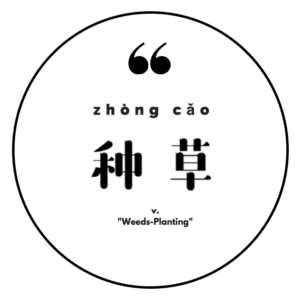
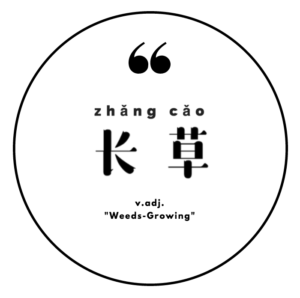
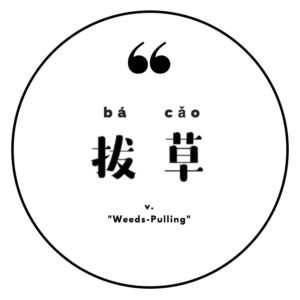
Why the heck are we talking about weeds?

Despite their literal meanings, Zhongcao, Zhangcao and Bacao in today's Chinese internet culture have nothing to do with weeds/gardening/plants at all. What they imply to are the different psychological stages of an individual's consumptive behaviors:
-"Zhongcao 种草"
The idea of influencing, or being influenced to fall in love with a particular product. You can "Zhongcao"(plant weeds) something to someone else, be it your friends, family or someone random online. At the same time we are all constantly being "Zhongcao-ed"by the mass load of information around us, from a friend's whole-hearted recommendation ("you MUST try that hotel!") to online reviews, comments and media articles.
-"Zhangcao 长草"
They are generally two ways to understand the idea of Zhangcao: first, it can be considered as the follow-up stage after you are being Zhongcao-ed with something. (just like weeds, once the seed is planted, things grow quick and wild.) More importantly however, Zhangcao implies to a self-driven, individually initiated desire to purchase or experience something rather than passively being allured to, you know, buy things.
-"Bacao 拔草"
The easiest to understand from a literal level, Bacao can actually get people confused because of its double meaning. In general, the idea of "Pulling out/removing/eliminating grass" refers to either losing interest to buy or having completed the purchase. For example, If your Chinese pal tells you"I finally Bacao-ed that restaurant", it could mean he/she either tried it already or decided to not to try it anymore.
✔︎The Origin
I'm sure by now you've got the idea of what weeds really means: basically, it is the metaphor used by Chinese netizens to depict our ever-growing, non-stoppable desire to buy, buy, buy more things.
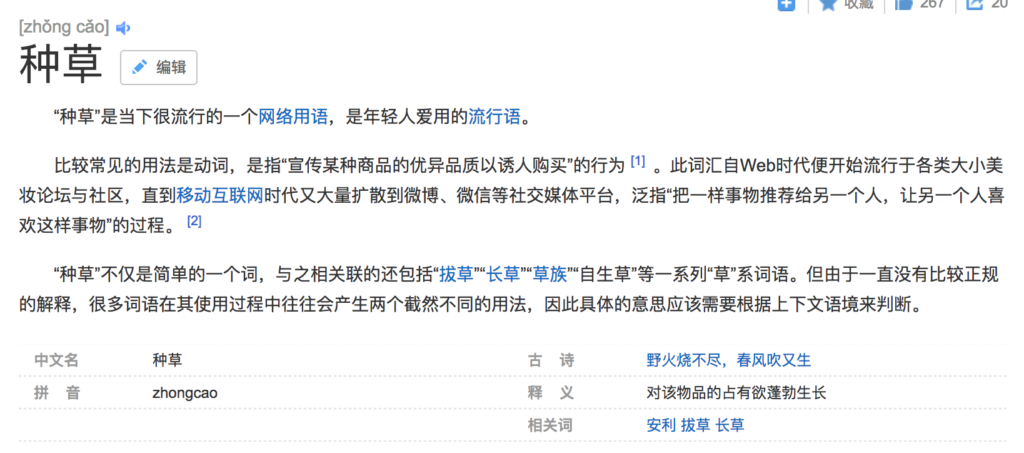
According to Baidu Baike, the weeds-to-consumerism analogy was first invented based on inspirations from ancient Chinese poems, of which many provided vivid portrays of Weeds' thriving, fast growth. One of the classics is from Li Bai, which states"even bonfire couldn't burn it all/with the breeze of spring it grows only more vigorous."
“野火烧不尽 春风吹又生。”
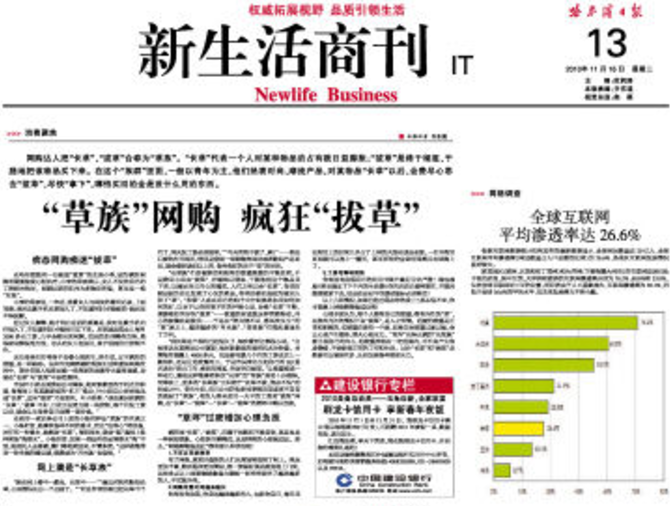
Chinese newspaper reporting on the rising phenomenon of "Weeds-Class"

"I am Zhongcao-ed (planted weeds by someone) again..."
For today's increasingly fierce and selective Chinese consumers, the processes of weeds-planting, weeds-growing and weeds-pulling often happen ferociously at the same time. A colleague of you recommended a newly opened cool restaurant, you mark it on your Dianping's wishlist while chatting to a friend about you recent Taobao purchase. Your friend received the shop link you just sent, waits for it to open on the Taobao mobile app while browsing her WeChat Subscription Accounts and clicked in a "5 Must-Have Fashion Items for the Fall"...
Weeds are planted and pulled, and the desire to shop and upgrade life through consumerism fixes one in a loop that rolls fast and dazzled.

✔︎The Who, Where and What
The Influencers:
When it comes to the weeds community, micro-influencers, especially those with an authentic and niche fan bases, dominates the ecosystem. Remember, the whole idea of weeds planting/growing/pulling is all about making spending decisions based on advices from your most intimate, trustworthy sources; that one or two best friends you talk to the most, that particular influencer on Weibo that you check ritually every single day, they are the most powerful weeds-planters who will make you willingly damage your wallet in the end.
The Consumers:
Young. Urban. Female. From the outside, these three words cover the majority of the Weeds-planters/growers/pullers in the Chinese Internet. They are not the whole picture of course, but certainly set the general trend.
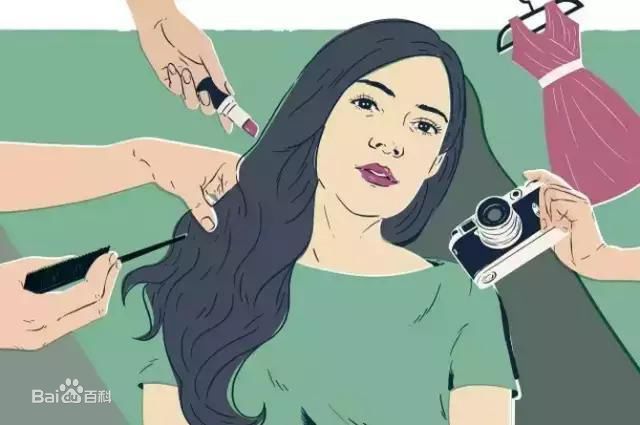
A rather sexist portray of a stereotypical "Weed Clan" member, according to Baidu.
And the weeds...
In a world full of materialistic allures, obviously everything could be a potential "weed field" long as it tailors to a specific interest of a targeted crowd. Yet generally speaking, Beauty-related products, mainly make-ups and skincare, are the heartland of flourishing weeds. (According to a survey by Euromonitor International, retail sales in China’s skincare and cosmetics products market grow at an average annual rate of 12.8% from 2016 to 2019, much higher than the global average of 6.0%)
Platform wise, as long as it is a social space suitable for content sharing and conversations (both public and private), weeds would quickly and easily grow within communities. Between Weibo and WeChat, China's two predominant social media platforms, the former has proven to be more weeds-friendly due to its openness, flexibility and more friendly connection with Taobao. (unlike Twitter, Weibo allows users to post lengthier written contents, videos and photos, comment on other people’s updates, and easily add comments when re-posting a friend’s message.)
Let's check out some real-life Weeds-cultivating examples.
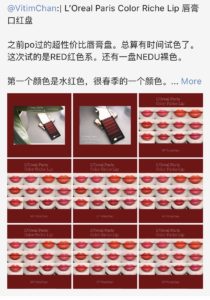
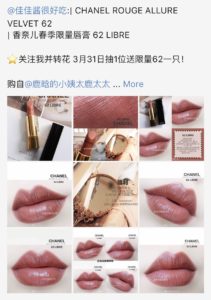
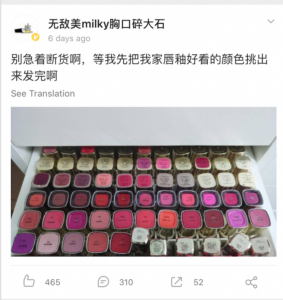
Inside the big wide mysterious Weibo hides a group of micro-influencers/bloggers dedicated to beauty consumerism. Unlike conventional KOLs who earn their livings from paid ads and brands sponsorships, these micro influencers, often with a follower base between 10k to 50k, devote their energy to research, buy, use, and review beauty products because of personal interests and a passion to share. (of course some of them might embrace commercialization at some point, but the majority have stayed rather small and focused) Apart from constantly producing high-quality, informative content, (some of these lipstick color swatches could easily take hours to shoot, color-correct, edit and curate) beauty micro-influencers are also extremely patient in responding to questions, comments, providing specific tutorials and particular product recommendations. In short, they've managed to create a tight-knitted community that is highly fertile for Weeds-planting and growing: by following these influencers, consumers would easily develop trust, bond with influencers on an emotional level and, as the result, follow their recommendations to buy, you know, just one more new lipstick. (although there are already like 50+ laying on the bathroom shelf...don't stare, I am not talking about myself!)
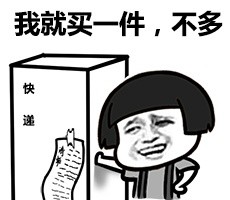
✔︎The Why and How
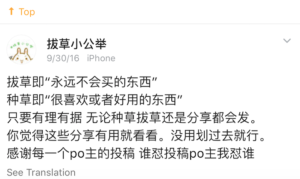
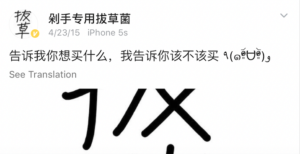


The ways people are talking about "weeds" on Chinese social media
Why did weeds came to dominate China's consumerist language, and if anything, what does it tell about China's consumerism culture comparing to the West?
Overgeneralization is dangerous, and to fully answer this question would require another 10 pages or so of research. Therefore, we'd like to keep this section short and briefly share some personal observations-
1) Within the specific context of China's socioeconomic development...
China's mobile internet boom has made social media and e-commerce literally two apples growing on the same tree: Chinese customers use social medias not only to stay in touch with their family and friends, but also to find and exchange information about products, experiences, events and ideas. The desire and power for socialization, in China's case, flourished at the same time as the personal desire for better materialistic life. By talking and sharing about everyone's rather private materialistic needs and wants, consumers feel comforted, liberated and perhaps even empowered as both individuals and a collective force.
2) On the ever-so-trending consumption upgrade...
As this McKinsey report explained, Chinese citizens are moving beyond spending money on the necessities, and their discretionary spending is taking off, meaning the consumers are willing to pay extra for better products, even if they don’t "need" them. From a more historical and cultural perspective, Chinese people value the sociological concept of “face”, and buying luxury or well-known products affirms one’s social-economic status, also known as “gaining face”. So the process of planting or growing weed is not merely a way of finding or sharing good products, but also a way to express and impose one's position on the social ladder.

But beyond anything, sharing is giving, and to share is a kind gesture that makes people happy.
Last night while writing this Report, I interviewed Nicky, a good friend of mine who's also a famous "beauty blogger/guru" on her WeChat Subscription Account and Weibo. For many followers, she's known as the professional weeds-planter, the most trust-worthy source for skincare and makeup product recommendations. (and believe me, it is not easy to keep your wallet fat when you have a good friend like this...)
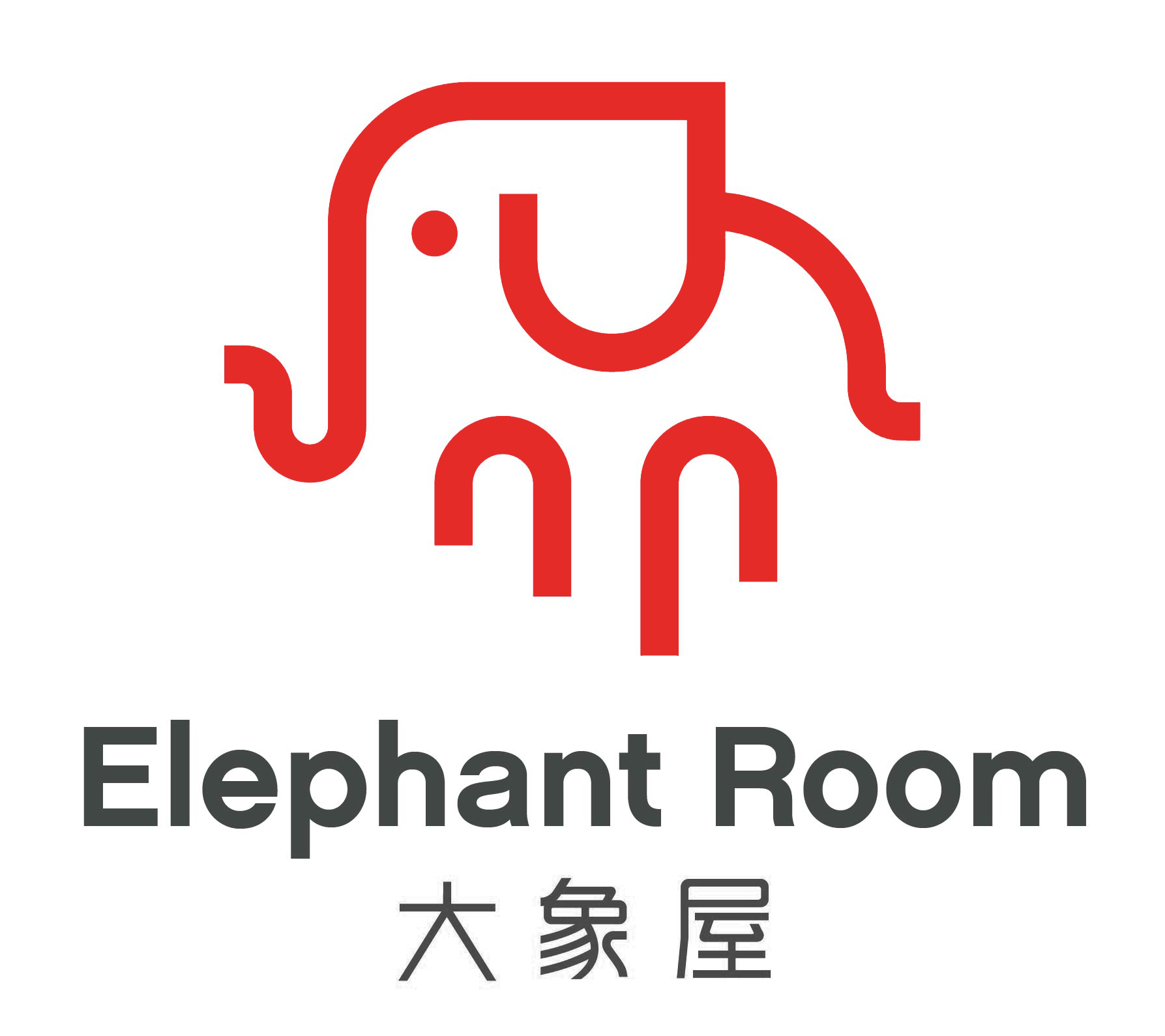
[…] few terms you may hear a lot in (online) conversations about attracting customers are: “zhongcao (种草)”, “zhangcao (长草)” and “bacao […]